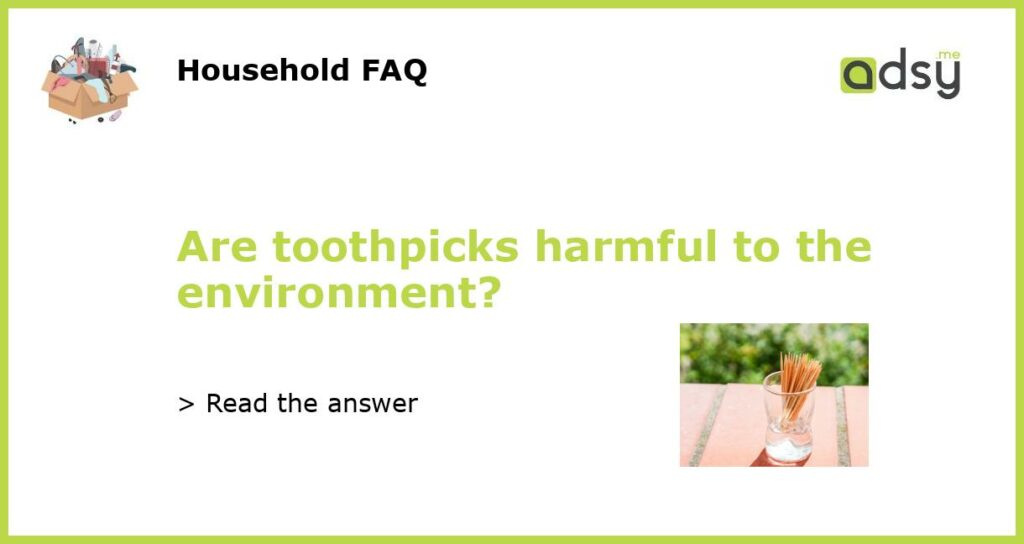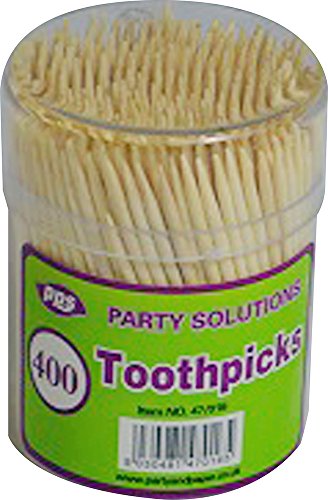Toothpicks and the Environment: Exploring the Impact
Everyday items we use without much thought, such as toothpicks, can have a significant impact on the environment. While toothpicks may seem harmless, it is essential to consider their production, disposal, and potential for pollution. Let’s take a closer look at the environmental implications of toothpicks.
The Production Process
The first step in understanding the environmental impact of toothpicks is to examine their production process. Toothpicks are typically made from wood, bamboo, or plastic, with wood and bamboo being the more natural and eco-friendly options. However, the production of wooden or bamboo toothpicks still involves cutting down trees or bamboo plants, leading to deforestation and habitat destruction. This process contributes to greenhouse gas emissions and biodiversity loss in ecosystems.
The manufacturing process for plastic toothpicks involves petroleum or other fossil fuel extraction. Plastic production not only generates greenhouse gas emissions but also leads to pollution through waste products and chemical releases. Additionally, plastic toothpicks often end up in the ocean, harming marine life and contributing to the global plastic crisis.
The Disposal Challenge
Another environmental concern related to toothpicks is their disposal. Many individuals irresponsibly dispose of toothpicks by throwing them into the garbage or flushing them down the toilet. This type of disposal can lead to blockages in sewer systems and cause water pollution. When toothpicks end up in water bodies, they can harm aquatic organisms and their habitats.
Wooden or bamboo toothpicks may seem biodegradable, but the reality is more complex. In landfills, where the majority of trash ends up, organic waste decomposes without oxygen, producing methane gas, a potent greenhouse gas that contributes to climate change. While biodegradable materials like wood and bamboo will eventually break down, it still releases harmful gases in the process.
Sustainable Alternatives
Given the negative environmental impact of traditional toothpicks, it is essential to explore sustainable alternatives. One option is to switch to toothpicks made from recycled materials. Several companies now produce toothpicks using post-consumer or post-industrial plastics, reducing the demand for new plastic production.
An even more eco-friendly alternative is to look for toothpicks made from sustainable materials, such as bamboo or birch wood sourced from certified sustainable forests. These materials are renewable and have a lower environmental footprint since they require less energy and water to produce compared to plastic.
Responsibly Dispose and Recycle
To minimize the harm toothpicks can cause to the environment, proper disposal is crucial. Users should avoid throwing toothpicks in regular garbage or flushing them down the toilet. Instead, toothpicks should be placed in designated waste bins or composted when made from organic materials.
Some toothpicks can also be recycled, depending on the material they are made from. Plastic toothpicks, for example, may be eligible for recycling programs that accept rigid plastics. However, it is important to check local recycling guidelines to ensure proper disposal.
While toothpicks may seem inconsequential, their impact on the environment should not be overlooked. The production process, disposal challenges, and potential for pollution make it clear that toothpicks contribute to environmental degradation. By choosing sustainable alternatives, responsibly disposing of toothpicks, and encouraging recycling efforts, we can minimize their harmful effects on the planet.






